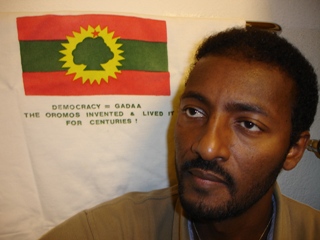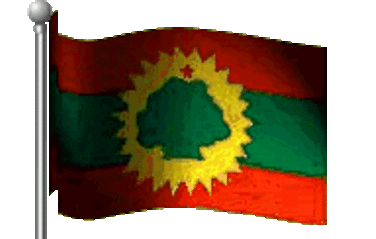War on terror thwarts Somali peace
If the US and UN fail to actively - and publicly - work against Ethiopia's presence in Somalia, the AU peacekeeping mission will have little chance of success
Commentary by Abdurrahman Warsameh in Mogadishu for ISN Security Watch (08/03/07)
Ten civilians were killed and 21 others wounded when newly-arrived Ugandan peacekeepers were ambushed in Mogadishu on Wednesday by unknown assailants. The attack happened while the unit was patrolling a portion of the capital. This was the second day in a row that the peacekeepers had come under fire. On Tuesday, they came under mortar assault shortly after their arrival at the airport.
These assaults, together with the intermittent attacks on Ethiopian troops already in Somalia could be a prelude to a major confrontation between Somali and African Union (AU) peacekeepers.
Such a confrontation could lead the AU peacekeeping mission down the fateful path of the doomed US-led UN operation in Somalia in the early 1990s.
There were no injuries in Tuesday's attack. However, a gun battle that ensued around the former defense ministry building in Mogadishu, where Ethiopian troops are stationed, left at least two civilians dead and 10 others wounded.
No group has claimed responsibility for the attack but the defeated Islamists - who abandoned the capital in December in the face of advancing Somali government forces backed by Ethiopian troops - have vowed to wage a guerrilla war against any foreign forces in Somalia.
Since December, Ethiopian forces in Somalia have been under attack from all sides and have largely been forced to remain on their bases. When Ethiopian troops have ventured out of their barracks, they have frequently been ambushed Many Somalis consider their Horn of Africa neighbor as a historic enemy and do not trust the motive for its presence.
Ethiopia has ignored a UN Security Council resolution banning it (albeit rather vaguely) - along with Djibouti and Kenya - from sending troops into Somalia, saying its national security was threatened by the Islamists who had taken over much of the country last year.
Somalia's neighbors have a vested interested in the war-torn nation. Ethiopia and Somalia have fought two wars over territorial and ethnic disputes which have not been officially resolved
The historic rift is even symbolized by the white five-pointed star of the Somali flag. According to Somali tradition, one of the star's points represents the disputed Ogaden region in western Ethiopia.
The Ethiopian government had earlier said it would withdraw its troops from Somalia in compliance with the Security Council resolution and "in respect of the sensitivity between the two nations." However, Ethiopia was emboldened to stay on when US and UN officials clearly backed its involvement, stating that Ethiopian troops could help root out Islamists, accused by the US of harboring members of al-Qaida. That charge has never been officially substantiated.
"Somalia's struggle to form a unified government after 15 years of clan warfare is achieving success, after the TFG [Transitional Federal Government] and Ethiopian forces drove away the UIC [Islamic Courts Union] and other destabilizing forces harbored there," Ambassador Vicky Huddleston, who recently served for 15 months as US acting ambassador to Ethiopia, told the Council on Foreign Relations on 22 February.
Section 5 of the last UN Security Council 1744 did not explicitly demand a full Ethiopian withdrawal but "urges member States of the African Union to contribute to the above [AU] mission in order to create the conditions for the withdrawal of all other foreign forces from Somalia."
Many in Somalia feel the need for peacekeepers but the involvement of a country seen as an enemy taints the peace mission and jeopardizes a unique opportunity to end 15 years of violent chaos in Somalia.
Ali Saeed, chairman of the Mogadishu-based Center for Peace and Democracy (CPD) think tank, believes that the apparent green light from the US for Ethiopian troop involvement in Somalia under the banner of fighting terrorism and UN insensitivity toward the Somalo-Ethiopian relationship will at the very least impede the AU peacekeeping mission. At the very worst, it could make AU troops part of the problem rather than the solution, he says.
"The current government is seen as just a puppet of the Ethiopians and not as a legitimate representative of the people of Somalia," he told ISN Security Watch.
The international community seems either unable or unwilling to discern the effect of the Ethiopian presence on the AU peace mission in Somalia. And the US, with its war on terror agenda in the Horn of Africa, has found a convenient partner in Ethiopia - regardless of the negative consequences for Somalia.
Unless both the US and the UN not only refrain from condoning the Ethiopian presence in Somalia but are seen to be actively doing so, the UN-sponsored AU peacekeeping mission will have little chance of bringing stability to Somalia.



0 Comments:
Post a Comment
<< Home